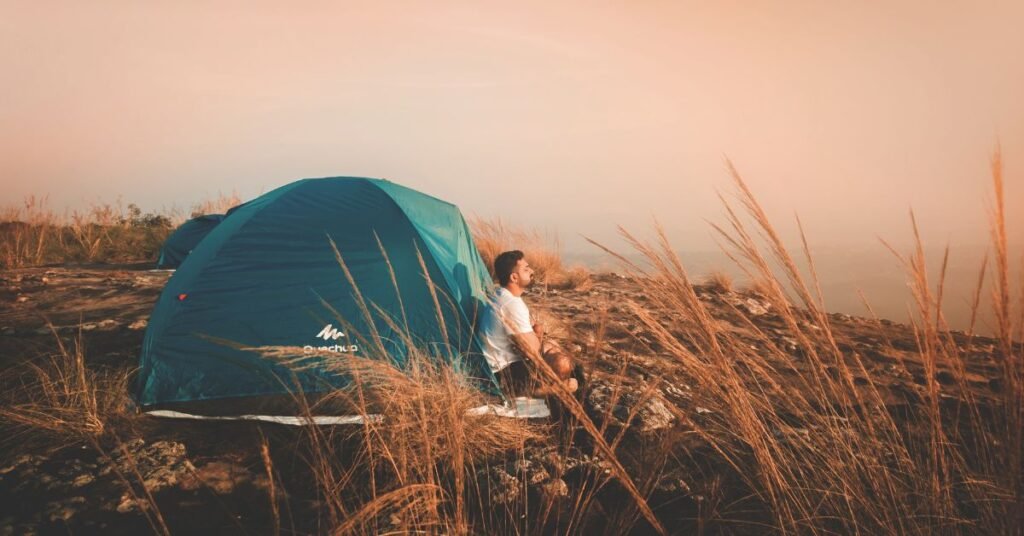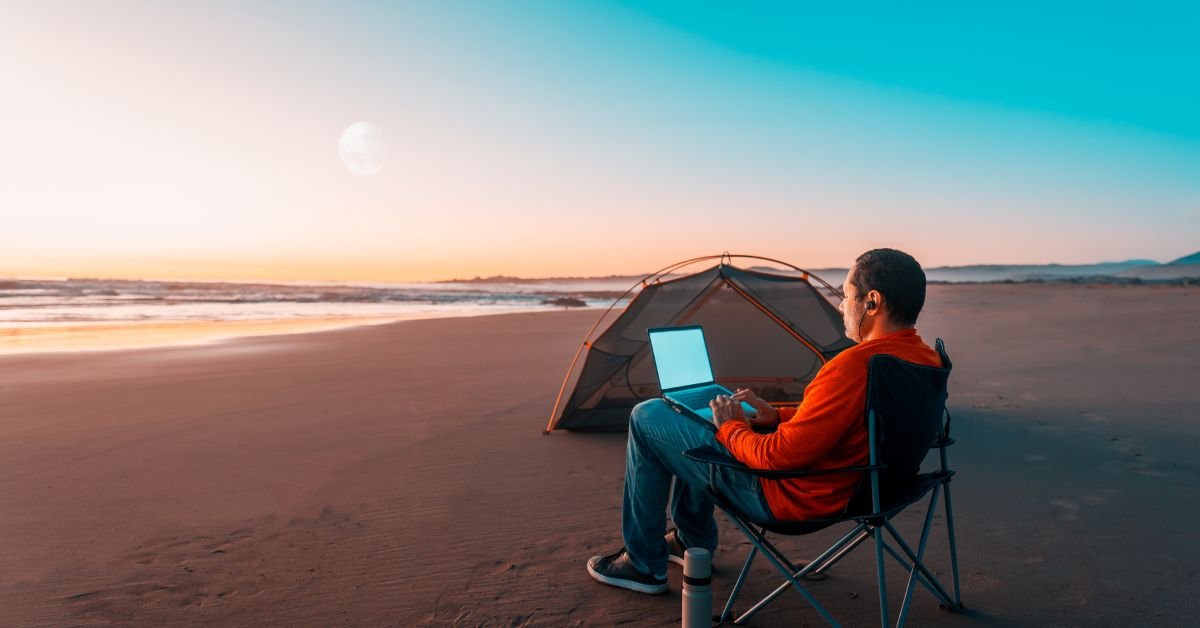The call of the wilderness is strong, and for many adventurers, solo camping is the ultimate way to answer that call. While camping with friends or family has its own charm, there’s something uniquely rewarding about venturing into the great outdoors alone. However, this endeavor demands careful planning, a keen awareness of safety, and the right mindset. In this comprehensive guide, we will delve into the essentials of solo camping, offering valuable tips on preparation, gear, safety, and embracing the solitude.
The Art of Planning
Choose the Right Location
Selecting an appropriate camping site is the foundational step in ensuring a safe and enjoyable solo camping experience. Research potential locations, considering factors such as terrain, climate, and accessibility. National parks, established campgrounds, and wilderness areas are excellent choices, each offering a different level of challenge. Be sure to check local regulations and obtain any necessary permits well in advance.
Inform Others of Your Plans
Solo camping doesn’t mean going off the grid completely. Before embarking on your adventure, inform friends or family about your itinerary, including your planned route and expected return date. This precaution ensures that someone is aware of your whereabouts, providing a crucial safety net in case of unforeseen circumstances.
Weather Forecast and Preparedness
The weather can be unpredictable, so checking the forecast for your chosen camping dates is imperative. Being prepared for rain, wind, or temperature fluctuations is essential. Pack accordingly, and consider the impact of weather on your planned activities. It’s better to have extra layers and not need them than to find yourself underprepared.
Know Your Limits
Understanding your physical and mental capabilities is vital when planning a solo camping trip. Choose a difficulty level that aligns with your skills and experience. If you’re new to camping or a particular terrain, start with shorter trips and gradually progress to more challenging environments. Knowing your limits ensures a safer and more enjoyable experience.
Essential Gear for Solo Camping
Shelter
Invest in a reliable, easy-to-set-up tent that suits your needs. Consider factors like weight, size, and weather resistance. A lightweight tent is crucial for solo camping, as you’ll be responsible for its setup and takedown on your own. Additionally, bring a ground tarp to protect the tent floor and enhance insulation.
Sleeping Bag and Pad
A good night’s sleep is essential for an enjoyable camping experience. Choose a sleeping bag appropriate for the expected temperatures and pair it with a quality sleeping pad for insulation and comfort. The right combination will ensure you wake up refreshed and ready for the day’s adventures.
Cooking Equipment
Solo camping means self-sufficiency, and a reliable cooking setup is key. Invest in a portable stove, lightweight cookware, and utensils. Pack enough fuel for your entire trip, considering your cooking needs. A warm meal at the end of the day can be a significant morale booster.
Navigation Tools
Getting lost in the wilderness is a solo camper’s nightmare, so be equipped with reliable navigation tools. Carry a detailed map, a compass, and a GPS device. Familiarize yourself with the area’s topography and mark significant landmarks to aid navigation.
Lighting
When the sun sets, a reliable source of light becomes indispensable. A headlamp or the best camping flashlight is a must for navigating your campsite and surroundings. Don’t forget to pack extra batteries to avoid finding yourself in the dark.
First Aid Kit
Accidents can happen, and being prepared is non-negotiable. Pack a well-stocked first aid kit that includes bandages, antiseptic wipes, pain relievers, and any personal medications you may need. Take the time to familiarize yourself with basic first aid procedures before your trip.
Clothing and Footwear
Dress in layers to accommodate changing weather conditions. Pack moisture-wicking base layers, insulating mid-layers, and waterproof outer layers. Choose sturdy, comfortable hiking boots with good ankle support, especially if you plan to explore varied terrains.
Backpack
Your backpack is your lifeline, carrying all your essentials. Choose one that fits well and distributes weight evenly. Pack strategically, placing heavier items closer to your back for better balance. A well-organized backpack makes it easier to access what you need without unpacking everything.

Safety Precautions
Emergency Preparedness
Prepare for the unexpected by carrying an emergency kit that includes a whistle, signal mirror, fire starter, and an emergency blanket. Brush up on basic survival skills, such as building a fire and constructing an emergency shelter. Knowing how to handle unforeseen situations will boost your confidence in the wilderness.
Wildlife Awareness
Different regions host different wildlife, and it’s crucial to be aware of the local fauna. Research the wildlife in your chosen camping area and take appropriate precautions. Carry bear spray in bear country, store food securely, and know how to react if you encounter wildlife. Respecting their habitats and maintaining a safe distance is paramount.
Hydration
Staying hydrated is fundamental to your well-being. Carry an ample supply of water or a reliable water purification system. Plan your route to include water sources, but be prepared to treat water from natural sources using a water filter or purification tablets.
Leave No Trace
Solo camping comes with a responsibility to minimize your impact on the environment. Practice Leave No Trace principles by packing out all trash, following established trails, and camping at least 200 feet away from lakes and streams. Respect the natural habitat, and leave it as pristine as you found it.
Mental Preparation
Embrace Solitude
The solitude of solo camping can be both intimidating and liberating. Embrace the opportunity to disconnect from the hustle and bustle of daily life. Leave behind the digital world, and allow yourself to be fully present in the natural surroundings. The solitude offers a unique chance for self-reflection and a deeper connection with nature.
Mindfulness and Relaxation
In the quiet moments of solo camping, practice mindfulness techniques to stay calm and centered. Engage in activities that promote relaxation, such as meditation, yoga, or simply sitting by the campfire and appreciating the sounds of the wilderness. The tranquility of nature can have a profound effect on your mental well-being.
Plan Leisure Activities
While solitude is a cornerstone of solo camping, incorporating planned activities elevates the overall experience. Pack a good book to immerse yourself in a captivating story under the starry night, or bring along a sketchpad to capture the awe-inspiring landscapes that surround you. Consider the therapeutic rhythm of strumming a musical instrument, letting the sounds harmonize with the natural symphony of the wilderness. These activities not only provide entertainment during downtime but also contribute to a more enriching and fulfilling solo camping adventure.
Emergency Communication
In the solitude of nature, safety remains a top priority. Ensure your peace of mind by maintaining a reliable means of emergency communication. Equip yourself with essential tools like a satellite messenger or a personal locator beacon. Knowing you have a direct line to assistance in case of an emergency allows you to explore with confidence and fully immerse yourself in the serenity of solo camping. With these communication tools on hand, you can focus on the beauty of your surroundings, confident that help is just a message away, ensuring a safe and enjoyable solo camping experience.
Conclusion
Embarking on a solo camping adventure is a journey of self-discovery, resilience, and a deep connection with nature. By meticulously planning your trip, investing in quality gear, prioritizing safety, and cultivating a positive mindset, you can unlock the full potential of solo camping. Remember, the key lies in preparation, self-awareness, and a genuine appreciation for the wonders of the sprunki horror Endless Fun Awaits!


